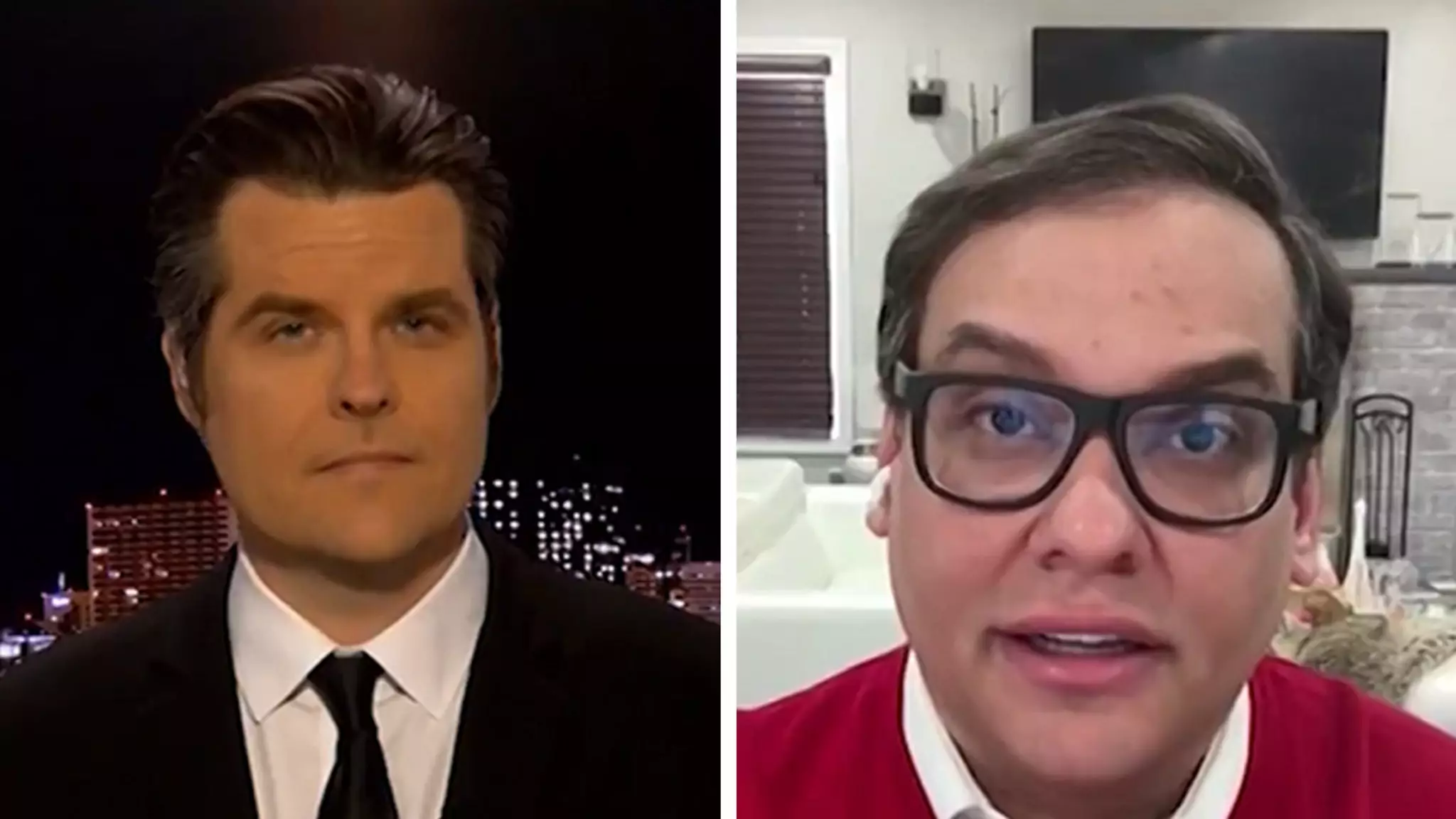George Santos, the former congressman whose political career imploded under the weight of scandal, has found himself contemplating an unusual request as he faces sentencing for serious crimes like fraud and identity theft. Instead of preparing to face a diverse population of inmates, Santos is leaning towards asking for solitary confinement if sentenced to prison. This desire to isolate himself raises questions not only about his motivations but also about the broader implications of his actions in the political arena.
A Unique Perspective on Solitary Confinement
During an appearance on “The Matt Gaetz Show,” Santos laid out his reasoning for wishing to spend his prison time alone. He believes that his former role as a congressman exposes him to unique risks inside the prison system, particularly from gang members that he had previously spoken out against. This claim, however, is laden with irony; a public figure who crafted their identity through embellishments is now using that same manufactured persona to seek protection behind bars.
Santos’ proposed two-year sentence might not seem severe compared to the charges he’s facing—a potential maximum of seven years—but the nature of his crimes and the notorious reputation he built for himself complicate his narrative. The demand for protective custody might reveal deeper insecurities about the consequences of his past political stances than any genuine fear of physical harm. It’s almost as if he is attempting to curate his experience of incarceration, despite the reality that prison is inherently communal.
Delving Into the Scandals
The scandal-ridden trajectory that Santos has taken is illustrative of a political landscape that often rewards charisma over integrity. Elected in 2022, he immediately garnered attention for his dubious claims and scandalous biography. The ensuing federal investigation inevitably led to his ousting from Congress, demonstrating the fragility of a political career built on fiction. Santos’ depiction of the justice system as a “witch hunt” only serves to underscore how he continues to deflect accountability, even as he grapples with the legal ramifications of his actions.
Notably, Santos’ interactions on shows such as Gaetz’s reveal a symbiotic relationship between disgraced politicians who continue to skew narratives to maintain their public allure. Santos’ refusal to acknowledge the gravity of his situation, instead framing it as an assault on his character, mirrors a larger trend where political figures evade responsibility by dismantling their own malfeasance as mere partisan attacks.
The Broader Implications for Political Accountability
Ultimately, Santos’ plight raises essential questions about accountability within the political ecosystem. As he navigates through the repercussions of his actions, the broader political environment must also reckon with the ease with which some individuals distort truth for personal gain. The request for solitary confinement, wrapped in a veneer of self-preservation, hints at a troubling attitude toward the consequences of one’s actions.
In a society that strives for justice, it is essential to ask whether individuals like Santos should be afforded the opportunity to sidestep the perils of their own making simply by manipulating narratives or echoing fears of retribution. His situation serves as a cautionary tale, revealing the fine line between political performance and ethical responsibility. While Santos may seek isolation as a shield, it is society that ultimately bears the burden of unaccountable politicians for whom the consequences of their actions often come far too late.

